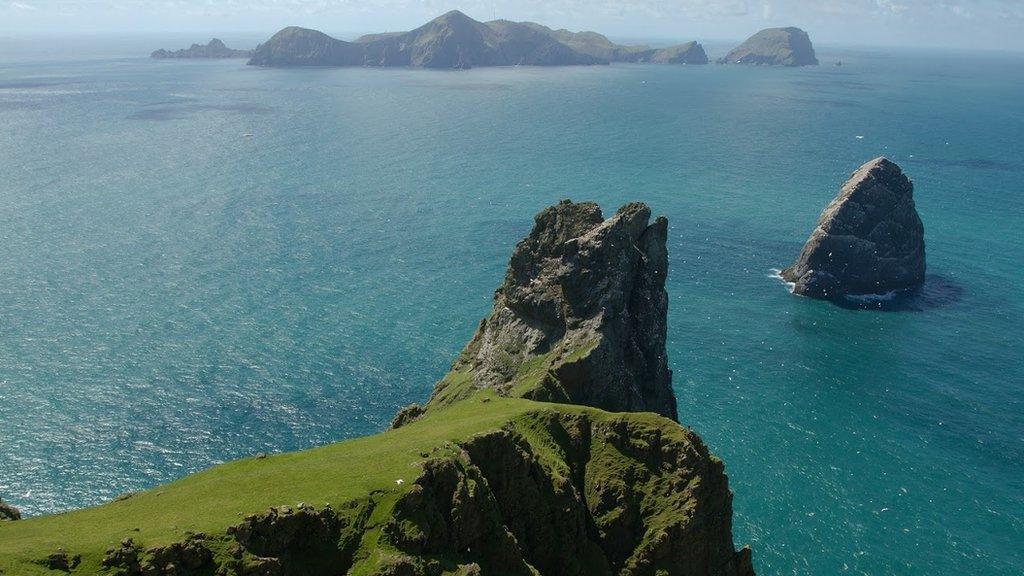First bird surveys in years on remote St Kilda islands
- Published

St Kilda was abandoned by its last islanders almost 90 years ago
Scientists have visited some of the most remote locations of the UK to carry out a survey of seabirds.
St Kilda is home to almost a million seabirds, including gannets, shearwaters and storm petrels.
St Kilda is a dual Unesco World Heritage Site
The archipelago, which lies about 40 miles (64km) west of North Uist, also has the UK's largest colony of Atlantic puffins.
A snowy owl is among the isles' rare visiting species.
The archipelago has almost a million seabirds
A team of scientists carried out the survey
A team of seven seabird surveyors has carried out the survey of Hirta and the outlying islands of Boreray and Soay for the National Trust for Scotland, which manages St Kilda - the UK's only dual Unesco World Heritage Site.
It was almost 20 years since birds on Boreray and Soay had been surveyed. This is because of the difficulty in landing on the islands from a boat due to the shorelines being a "jumble" of steep cliffs and pinnacles.
The north-west end of Soay is one of the least visited spots in the British Isles, and the last scientific survey of the location was done by archaeologists more than 10 years ago.
The islands are home to the UK's largest puffin colony
Some parts of St Kilda had not been surveyed for years
The last islanders left the main island of Hirta in 1930 after life there became unsustainable.
People only now live on Hirta on a temporary basis to work at a military radar site, or on wildlife conservation projects and scientific studies.
A snowy owl is one of St Kilda's rarest visitors
The survey was done for the National Trust for Scotland
Results from the seabirds survey are expected later this year.
Images are the copyright of Rowan Aitchison/National Trust for Scotland.